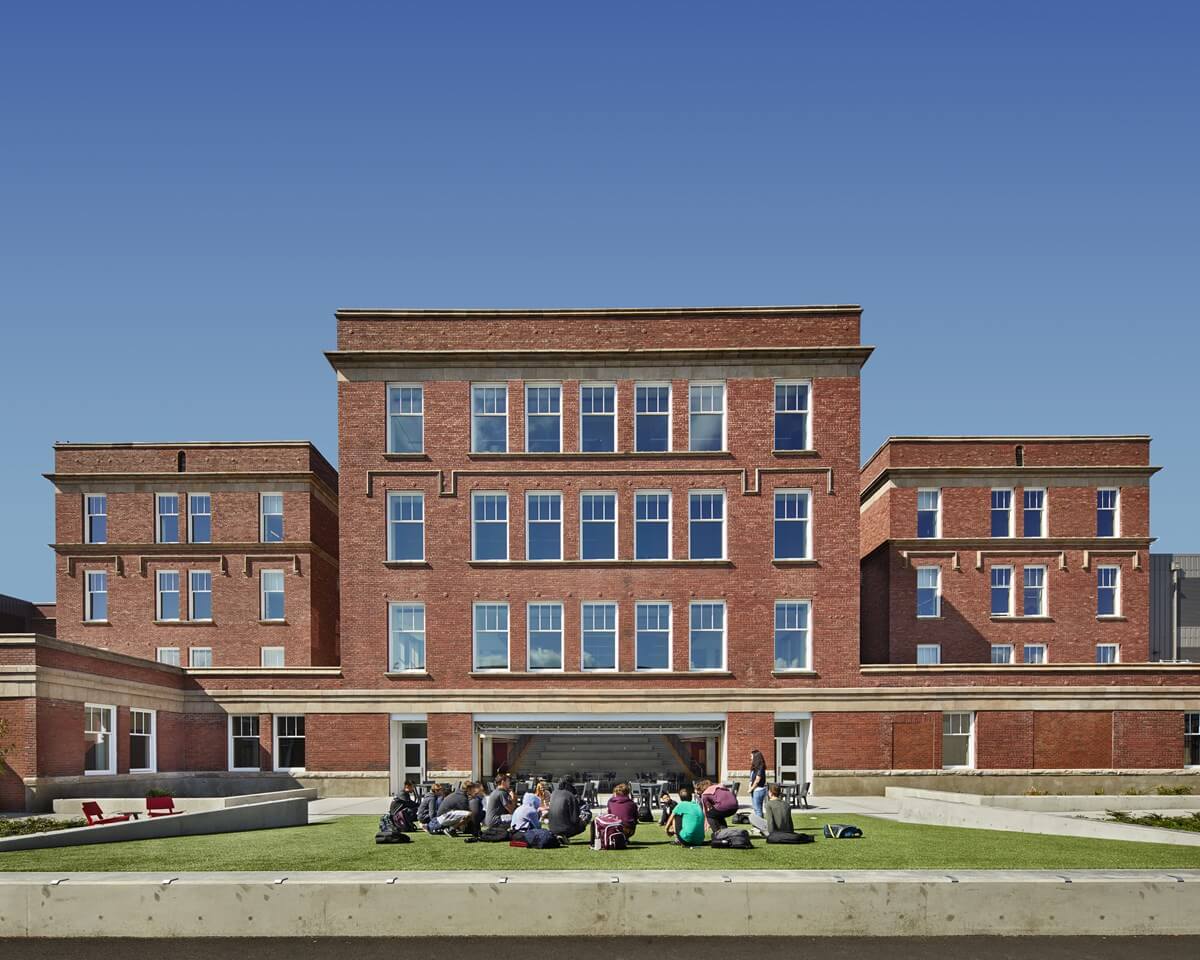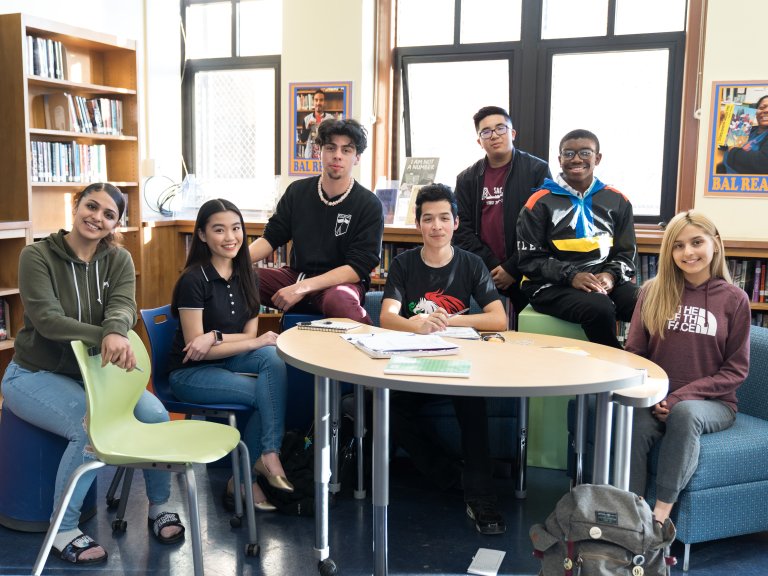The Effect of School Environments on Academic Success and Personal Well-Being
The school setting considerably affects both academic success and personal well-being, encompassing elements such as physical design, class atmosphere, and social characteristics. The design of educational rooms, consisting of all-natural lighting and ergonomic furniture, can boost pupils' focus and comfort. Additionally, the high quality of teacher-student partnerships and the nature of peer communications play crucial roles in promoting an ambience for discovering and psychological support. Understanding exactly how these various elements interplay to shape student results increases important concerns about enhancing educational settings for holistic development. Just how can schools purposefully improve these elements to much better sustain their trainees?
Physical Layout and Layout
How does the physical format and style of a school effect scholastic success? The setup and aesthetic of an institution environment can dramatically influence pupils' learning results.
All-natural lighting and reliable ventilation systems are essential in improving cognitive feature and decreasing absence. Researches have shown that classrooms with enough natural light enhance pupil concentration and decrease feelings of sleepiness. Ergonomic furniture tailored to trainees' needs can prevent physical discomfort, allowing for extended focus and involvement in scholastic activities.
Accessibility to outdoor spaces and aesthetically pleasing surroundings also play an essential function - Save Temecula Schools. Green areas and properly maintained school grounds supply opportunities for workout and mental leisure, both of which are necessary for maintaining high degrees of scholastic efficiency. Fundamentally, an attentively designed physical atmosphere can act as a stimulant for academic excellence, fostering an environment that sustains both training and learning
Classroom Environment
A positive classroom atmosphere is fundamental to accomplishing academic success. An environment that cultivates a sense of security, inclusivity, and common regard urges pupils to engage even more actively in their knowing processes. The ambiance of a class, consisting of facets such as lights, sound degrees, and seating arrangements, can dramatically influence student concentration and inspiration. A well-ventilated, well-lit class with minimal diversions can boost cognitive feature and minimize anxiety, therefore advertising better scholastic outcomes.
In addition, the classroom atmosphere ought to sustain a culture of cooperation and open communication. They are more likely to involve deeply with the product and develop crucial assuming abilities when trainees feel comfortable sharing their ideas and asking questions. Peer interactions and team activities can boost discovering by offering varied viewpoints and cultivating teamwork
Moreover, establishing consistent routines and clear assumptions can develop a structured setting that enables students to concentrate on their research studies. By lessening uncertainty and supplying a predictable structure, trainees can much better manage their time and obligations. Inevitably, a positive classroom atmosphere not only improves scholastic performance however additionally adds to the total well-being of students, preparing them for future educational and individual undertakings.
Teacher-Student Relationships
Building on the relevance of a favorable class atmosphere, the partnerships between educators and trainees play a crucial duty fit scholastic success. A healthy teacher-student connection cultivates a discovering environment where students feel valued, comprehended, and sustained, which dramatically improves their motivation and involvement. When trainees view their instructors as approachable and empathetic, they are more probable to take part actively in course and seek help when required, contributing to a deeper understanding of the subject.

Efficient communication is vital to supporting these relationships. Educators who employ open, considerate, and constant communication develop a foundation of trust. This depend on allows students to express their concepts and concerns openly, cultivating a collaborative discovering environment. Essentially, solid teacher-student relationships are a cornerstone of instructional success, playing a crucial role in both academic achievement and personal growth.
Peer Communications
Peer interactions significantly affect scholastic success by shaping a pupil's social and cognitive advancement. Positive peer interactions can boost a pupil's motivation and engagement in scholastic tasks through collaborative understanding and common support.

Effective peer interactions likewise add to the growth of crucial life skills, such as communication, collaboration, and conflict resolution. These social proficiencies are critical for both scholastic success and personal well-being, emphasizing the relevance of fostering positive peer characteristics within the college setting.
Extracurricular Activities
Participating in extracurricular tasks plays an essential role in a trainee's academic success and personal growth. These activities, varying from sports groups to question clubs, use pupils opportunities to sharpen valuable skills such as leadership, time administration, and synergy. Research continually shows that trainees that take part in after-school activities tend to accomplish greater scholastic efficiency. This relationship is typically credited to the organized setting and the self-control required to stabilize both extracurricular and academic dedications.
Furthermore, extracurricular participation cultivates a feeling of belonging and community, which is vital for individual wellness. Getting involved in group activities this content enables trainees to develop and strengthen social networks, improving their emotional and social intelligence. These communications are essential for establishing social abilities that are beneficial in both academic and future professional settings.
Furthermore, extracurricular tasks give a useful electrical outlet for students to discover their rate of interests and enthusiasms past the common curriculum. This expedition can cause the exploration of new skills and potential profession courses, better inspiring trainees to involve even more deeply in their scholastic work. To conclude, the function of after-school activities prolongs past plain recreation; they are important to fostering an all natural instructional experience that promotes both scholastic success and individual development.
Verdict
Thoughtfully created physical designs and classrooms, along with positive teacher-student connections and constructive peer communications, considerably improve trainee inspiration and interaction. These components jointly highlight the value of creating and preserving optimal institution environments for the advantage of students' individual and academic growth.
Inevitably, a favorable class ambience not just improves academic performance yet likewise adds to the total well-being of trainees, preparing them for future instructional and personal ventures.
